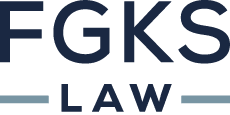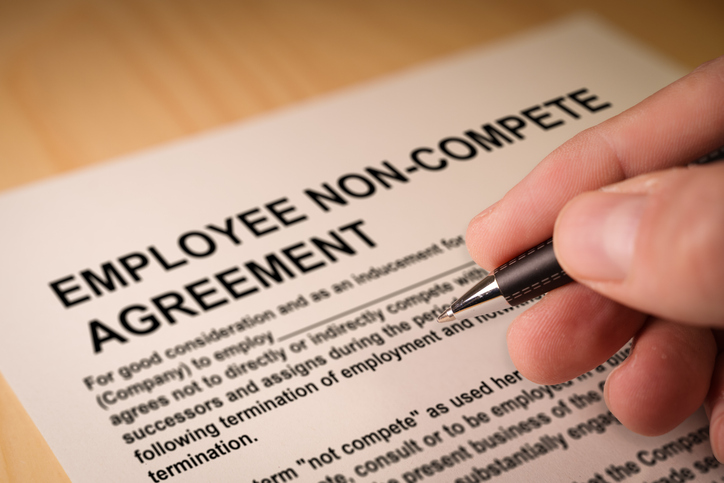Ohio Announces “Stay At Home” Order
Non-Essential Business and Operations Must Cease
Yesterday afternoon, Governor Mike DeWine announced that the Ohio Department of Health has issued a “stay at home” order, telling Ohio residents to stay at home and requiring Ohio businesses to temporarily cease operations unless they are an “essential business.” The order includes a list of businesses that have been deemed “essential,” including:
- Financial and insurance institutions
- Healthcare and public health operations (including hospitals, clinics, dental offices, and pharmacies)
- Stores that sell groceries and medicine
- Restaurant carry-out and quick-serve food operations
- Food and beverage production and agriculture (including farming, livestock, fishing, baking, and other production agriculture, including cultivation, marketing, production, and distribution of animals and goods for consumption)
- Critical trades (building and construction tradesmen and tradeswomen, plumbers, electricians, exterminators, cleaning and janitorial staff for commercial and governmental properties, security staff, HVAC, painting)
- Mail, post, shipping, logistics, delivery, and pick-up services
- Transportation (including airlines, Ubers and Lyfts, and other private, public, and commercial transportation and logistics providers necessary for “Essential Activities” as described in the order)
- Hardware and supply stores
- Manufacturing companies, distributors, and supply chain companies producing and supplying essential products and services in and for industries (such as pharmaceutical, technology, biotechnology, healthcare, chemicals and sanitization, waste pickup and disposal, agriculture, food and beverage, transportation, energy, steel and steel products, petroleum and fuel, construction and communications)
- Gas stations and businesses needed for transportation (including auto-supply and auto-repair shops)
- Professional services (such as legal services, accounting services, insurance services, real estate services (including appraisal and title services))
- Businesses that sell, manufacture, or supply other essential businesses with the support or materials necessary to operate (including computers, audio and video electronics, household appliances; IT and telecommunication equipment; hardware, paint, flat glass; electrical, plumbing and heating material; sanitary equipment; personal hygiene products; food, food additives, ingredients and components; medical and orthopedic equipment; optics and photography equipment; diagnostics, food and beverages, chemicals, soaps and detergent; and firearm and ammunition suppliers and retailers for purposes of safety and security)
- Businesses necessary to offer, provision, operate, maintain and repair “Essential Infrastructure” (which includes food production, distribution, fulfillment centers, and storage facilities; construction (including construction required in response to this public health emergency, hospital construction, public works construction, school construction, essential business construction, and housing construction); building management and maintenance; airport operations; operation and maintenance of utilities, including water, sewer, and gas; electrical (including power generation, distribution, and production of raw materials); distribution centers; oil and biofuel refining; roads, highways, railroads, and public transportation; cybersecurity operations; flood control; solid waste and recycling collection and removal; and internet, video, and telecommunications systems)
To see the complete list of essential businesses and entire text of the order, please click here.
The order also cites to a “Memorandum on Identification of Essential Critical Infrastructure Workers During COVID-19 Response”, issued by the U.S. Department of Homeland Security on March 19, 2020. The Memorandum is included at the end of the order – all businesses deemed essential on that list are also considered essential for purposes of Ohio’s order.
Essential businesses that remain open must take proactive measures to ensure compliance with the order’s “Social Distancing Requirements,” including, where possible:
- Designating six-foot distances (with signage or tape)
- Providing hand sanitizer products
- Separate operating hours for vulnerable populations (for instance, permitting only the elderly and vulnerable customers to shop between 9 am and 11 am)
The order will go into effect on Monday, March 23, at 11:59 p.m. and remain in effect until at least April 6th, at which point in time it will be reevaluated.
To review our earlier Client Alerts pertaining to the COVID-19 pandemic and the Families First Coronavirus Response Act, please click here and here. If you have any questions about whether or not your business is an “essential business,” or any other questions about what you should be doing in light of the COVID-19 pandemic, please do not hesitate to contact one of the attorneys at FGKS Law at 937-492-1271.





